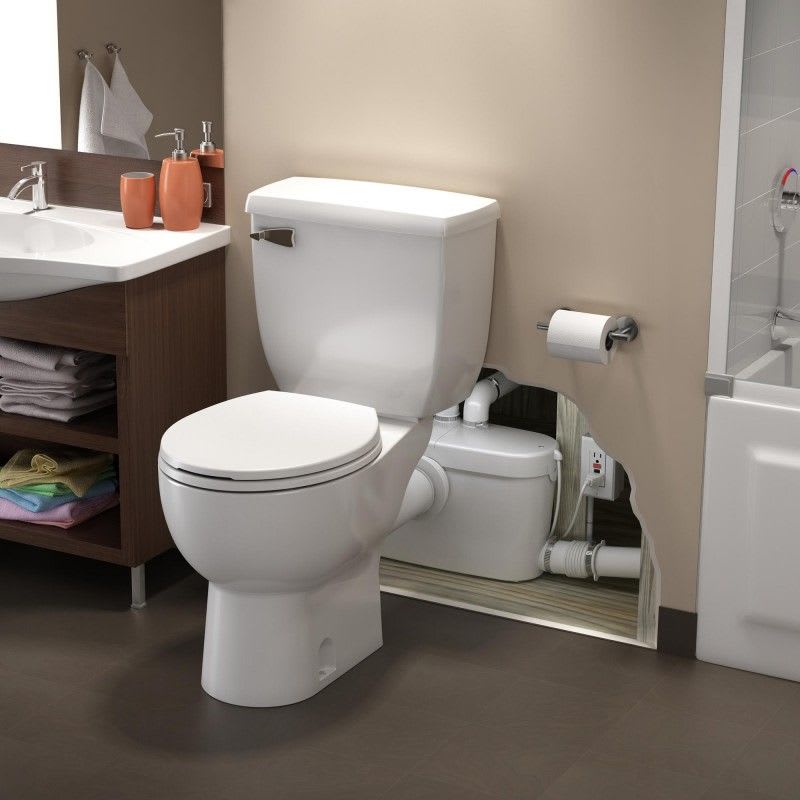What is a Macerator?
A macerating toilet is an up flush toilet system. It sends waste to a unit behind the toilet in a large container or a container in the wall. High powered blades liquefy the waste before it is pumped out of the unit through to a pipe that is directly linked to the mains drainage. A regular toilet has a drain line that is below the level of the waste so it uses gravity to pull the waste down and out.
They are more expensive than a standard toilet but are less expensive than having to create and build an entirely new plumbing system within a property. This is why some landlords may choose to install one as a second toilet. They’re not recommended to be used as the main toilet as they can be overworked and fail due to being used all day every day by a large number of people.
What happens when I put the wrong substance in my macerator?
If you put the wrong substance down the toilet for example feminine products, kitchen towels, wet wipes, or other bulky objects, this will jam or block up the rota and the outlet waste that is pumping out. This will result in calling out a plumber. In the case of burning out the motor, this will mean the unit will need replacing, which is not ideal and costly.
They also can sometimes emit a bad smell which can sometimes be unpleasant and we have had a fair few reports of people complaining about this, which means either a plumber having to visit and clearing the pipes which are often narrower than standard pipes.
My Macerator is blocked is this the Landlord's responsiblity?
If the macerator is blocked, it is the responsibility of the landlord to make sure it is safe. As long as there is a main toilet in the house, the landlord is in his rights to book in an emergency plumber on a normal weekday. However, if the macerator is damaged due to misuse, then the responsibility is then down to the tenants to cover the plumber costs or replacement of the unit.
Are Macerators noisy?
Macerators do make noise, especially when the macerating happens. So, this is something to consider when installing one into a property. If it is noisy it can be due to a foreign object inside the macerator caught on the macerator blade-like sanitaryware, toilet cleaning wipes, or baby wipes. A macerator cannot chop these items up and throw the motor off balance when it is running, you will need to remove these objects immediately to avoid damaging the motor.
How long do macerators last?
The general rule about macerators is that the machine is an added 2nd toilet and is only built good enough for a small amount of traffic, which should last for up to 10 years depending on the use. If the macerator is being used in high traffic for example student accommodation, then you would expect about 3 years. This can be costly if they fail and end up needing to be replaced. Also, if Bleach and other cleaning solutions have been overused this can shrink and damage the rubber membrane. Another issue seeing that it needs electricity to run, this can cause the power to trip in a property.
Benefits of a standard gravity toilet
Although installing a normal toilet costs more than installing a macerator you face far fewer issues with a standard toilet plumbed into the main waste. If issues do arise these are usually easily rectified by plunging the toilet which any capable tenant can do if one is supplied. If a macerator blocks you can plunge it, but you can’t use drain rods which you can in a conventional toilet.


